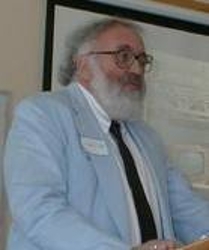

|

|
IN MEMORIAM
Kenneth H. Craik
Professor of Psychology, Emeritus
UC Berkeley
1936-2012
Ken Craik was born April 10, 1936 and passed away on March 25, 2012 at his home in Berkeley, California, close to his 76th birthday, after a long and debilitating illness. He was a driving force in helping to establish the field of Environmental Psychology, writing the first major review of the emerging field in The Annual Review of Psychology (in 1973), serving as founding co-editor of the Journal of Environmental Psychology (in 1980), and being instrumental in the establishment of the Environmental Psychology Division of the International Association of Applied Psychology. Ken was also a pioneer in developing methods of measuring people and places.
Ken completed his Ph.D. in 1964 at Berkeley publishing the results with his early mentor Theodore Sarbin, the distinguished social psychologist and personality theorist. The university quickly spotted his talents and he was taken on to the faculty straight away, staying as a professor for the rest of his career. His PhD work was on the perception of time, but even then he was interested in personality differences and the influences of context. Those two areas remained the focus of his intellectual activity throughout the rest of his life; the ways in which the physical environment was relevant to human experience and activity, and studies of personality differences. As his productive career unfolded those central foci broadened into important practical domains such as environmental impact assessment, relating to such matters as awareness and perception of electricity pylons. His interests in personality took him into the psychology of politics and especially of politicians, leading him to be recognised as one of the founders of present day political psychology.
In the 1970's he collaborated with his good friend Donald Appleyard to set up an environmental psychology laboratory at Berkeley that allowed models of buildings to be filmed as if moving amongst them. A large model of downtown San Francisco was a particular feature that allowed the visual impact of proposed buildings to be studied in moving images. This was typical of his bridging richly conceptual ideas in psychology with direct practical implications.
His concern with the way people interact with their surroundings was also expressed in his seminal “Lived Day” studies that echoed the ecological psychology of Roger Barker and his colleagues at the University of Kansas. For this research Ken and his associates filmed a full day in the lives of participants, opening the way to the consideration of how people actually carry out their day-to-day lives. Ken’s thoughtful conceptual analysis of this method served as an important forerunner to the recent widespread interest in ambulatory assessment and other methods for measuring individuals in situ. Ken’s Lived Day analyses were part of his fascination with significant aspects of human experience in context, which included his studies of humor and reputation.
For many of the early years of the Journal of Environmental Psychology he worked in an editorial role, overseeing the reviews of papers. Like all good editors he never simply sat back and accepted reviewers' comments but always carried out detailed examinations of the papers himself, preparing extensive comments and thoughtful guidance for the authors. As a consequence, the high standard of papers in the journal today owes a lot to the benchmarks he set in its early days.
Ken had considerable influence in the field of personality psychology. He was a gifted supervisor and many of his students, to his great delight, went on to distinction in their field. He was a creative researcher who published important work on the nature of explanation in personality, temporal psychology, and most recently a bold analysis of reputation as a field of interdisciplinary activity. Ken was also a wise and constructive administrator, having directed Berkeley’s Institute for Personality Assessment and Research, a highly distinguished and influential research institute focusing on personality and human achievement.
His colleagues and former students remember his warm, good humor and pleasant manner, informed by a deep and serious commitment to scientific psychology. He is survived by his loving wife, Janice, of 54 years, two daughters, one son, one son-in-law, one daughter-in-law, and one granddaughter
David Buss
David Canter
Sam Gosling
Brian Little